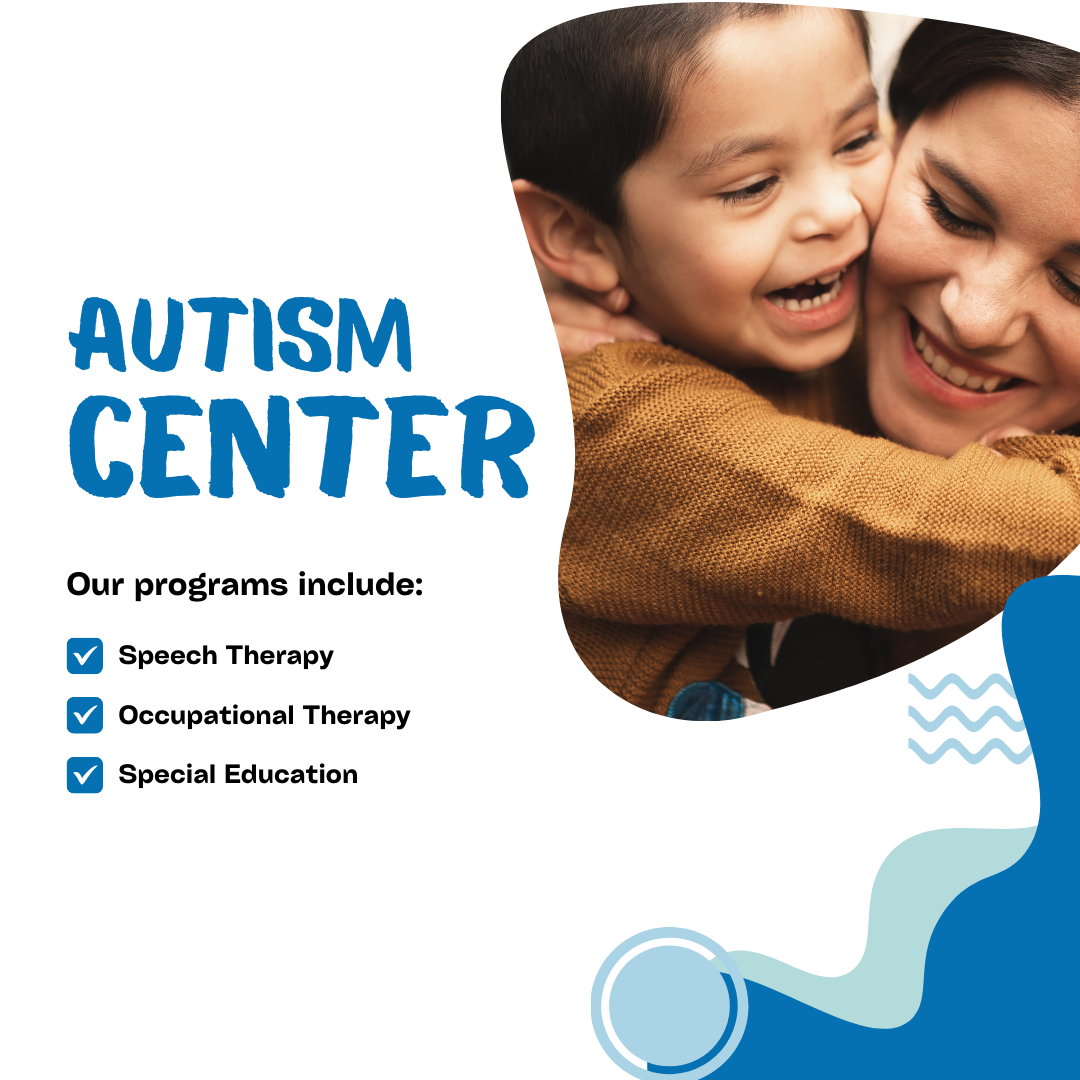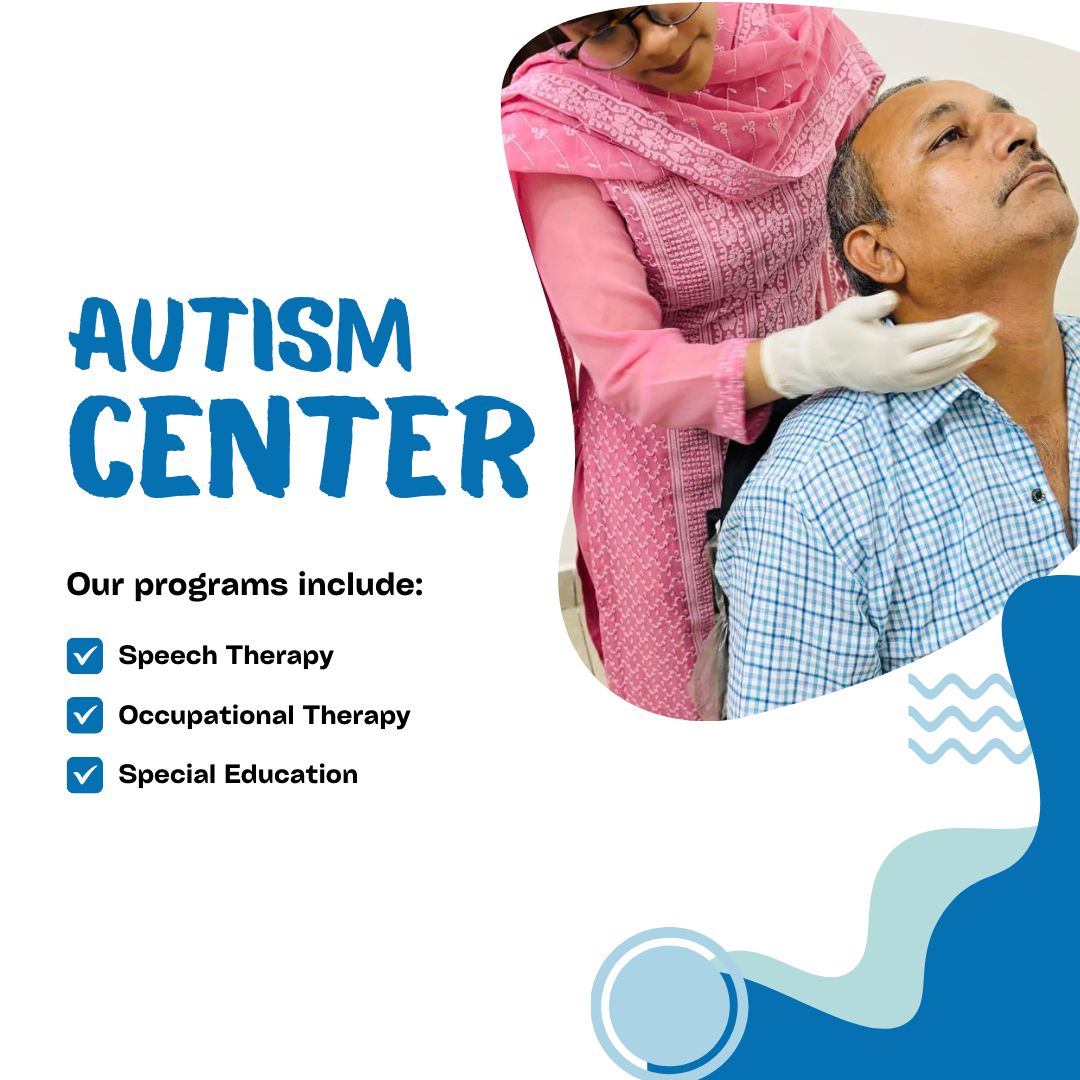Speech therapy focuses on the assessment and treatment of communication difficulties and speech disorders. At MySpeech, our expert Speech-Language Pathologists (SLPs), also known as speech therapists, use a variety of techniques to help improve communication skills. These may include articulation therapy, language intervention activities, and other tailored approaches based on the specific speech or language disorder being addressed. We provide speech therapy for individuals of all ages. The process begins with a thorough assessment to understand the patient's needs, followed by a provisional diagnosis. Based on this, a personalized therapy plan is created to address and improve communication challenges.
Speech Therapy for Children
At MySpeech, we tailor our speech therapy sessions for children based on their specific needs, age, and the type of speech or language disorder they have. Therapy can take place one-on-one or in small groups, ensuring personalized care for each child. Our speech-language pathologists (SLPs) engage children through interactive activities such as talking, playing, and using visual aids like books and pictures to stimulate language development.

Speech Therapy for Adults
For adults, speech therapy at MySpeech begins with a thorough assessment to determine the most suitable treatment plan. Our therapy sessions aim to address speech, language, and cognitive-communication challenges that may arise due to stroke, injury, or neurological conditions.
Additionally, we offer specialized therapy for adults with swallowing difficulties caused by medical conditions like Parkinson’s disease or oral cancer. Our SLPs focus on retraining swallowing functions to improve overall quality of life.

Types of Populations Who Need Speech Therapy
Speech therapy is essential for individuals across various age groups who face speech and language challenges. Common conditions that benefit from speech therapy include:
- Delayed speech and language development
- Autism Spectrum Disorders (ASD)
- Attention Deficit Hyperactivity Disorder (ADHD)
- Speech sound disorders like misarticulation
- Learning disabilities
- Cerebral palsy
- Down syndrome
- Aphasia (language impairment)
- Dysarthria (motor speech disorder)
- Voice disorders
- Swallowing disorders (dysphagia)
- Hearing impairment
- Intellectual disabilities
- Acquired disabilities (e.g., stroke, head injury)
- Neurodevelopmental motor disorders
- Specific learning disabilities
- Speech therapy plays a critical role in improving communication skills for these populations, helping them achieve better speech and language outcomes.
Types of Speech and Language Disorders
Speech therapy helps treat a variety of speech and language disorders that affect communication. Here are some common types:
- Articulation Disorders: This occurs when a person struggles to form certain sounds or letters correctly. They might replace, distort, or miss out on sounds, such as saying “thith” instead of “this.”
- Fluency Disorders: Fluency disorders impact the flow and rhythm of speech. Stuttering and cluttering are two examples. A person with stuttering may repeat words or get stuck on sounds, while cluttering involves speaking too quickly, often merging words together.
- Resonance Disorders: These affect voice quality due to irregular airflow in the nasal or oral cavities, often caused by conditions like cleft palate or swollen tonsils. They can also happen if certain parts of the throat, like the velopharyngeal valve, don't function correctly.
- Receptive Language Disorders: Individuals with this disorder may find it difficult to understand or process what others are saying. This can make them seem disengaged or cause issues with following directions. Conditions like autism, ADHD, cerebral palsy, or hearing loss can contribute to receptive language challenges.
- Expressive Language Disorders: People with expressive language disorders struggle to convey their thoughts and ideas. They might form sentences incorrectly or use the wrong verb tense. This disorder can be linked to developmental conditions like Down syndrome or result from head injuries.
- Cognitive-Communication Disorders: These arise from brain injuries that affect thinking and communication abilities. People may experience issues with memory, problem-solving, and speaking clearly. Causes include neurological conditions, brain injuries, or strokes.
- Aphasia: This acquired condition affects a person’s ability to speak, understand language, and sometimes read and write. Aphasia is most often caused by strokes but can also result from other brain disorders.
- Dysarthria: This disorder leads to slow or slurred speech due to weakened muscles in the face, throat, or tongue. It’s often associated with nervous system disorders like multiple sclerosis (MS), ALS, or strokes.
- Speech therapy begins with a detailed assessment by a speech-language pathologist (SLP), who will identify the type of disorder and recommend the most effective treatment plan. Our Service at MySpeech- Speech And Hearing Clinic aligns to above disorders to identify, evaluate and treat.
At MySpeech, we are committed to improving the quality of life for those with communication and hearing needs. Leading our team is Ms. Anjali Sharma, a skilled professional with 5 years of experience in the field. She has previously served as a consultant at Max Hospital, Vaishali, and DrSpectra – Complete Tinnitus and Speech Treatment.
Whether you need support for yourself or a loved one, we are here to help you achieve better speech, hearing, and communication.
Speech Therapy Exercises and Resources
Speech therapy at MySpeech includes a variety of exercises tailored to improve communication and cognitive skills. These may include:
- Problem-solving, memory, and organization activities to enhance cognitive communication
- Conversational strategies to improve social interactions
- Breathing exercises to help with voice resonance
- Exercises to strengthen oral muscles for better speech clarity
For those looking to supplement therapy at home, there are many resources available, including:
- Speech therapy apps
- Language development games and toys, like flip cards and flashcards
- Workbooks for structured practice
How Long Will You Need Speech Therapy?
The duration of speech therapy depends on several factors:
- Age of the individual
- Type and severity of the speech disorder
- Frequency of therapy sessions
- Any underlying medical conditions
- Progress in treating the medical condition
Some speech challenges, especially in children, may improve with age and regular therapy. Others, like speech disorders related to strokes or medical conditions, may require long-term therapy and maintenance. Improvement is often seen over time as therapy continues and the medical condition stabilizes.
At MySpeech, we understand that everyone’s journey is different, and we are here to support you every step of the way. Booking an appointment with us is the first step toward clearer communication and improved quality of life.
What is Early Intervention at MySpeech?
Early Intervention at MySpeech refers to programs and therapies designed to address speech, language, and hearing challenges in young children. It is crucial to act early when signs of developmental delays or communication problems appear. By offering timely resources and skills, we aim to support a child's growth and development during their most formative years.
Early intervention is essential for children who exhibit risk factors or vulnerabilities, such as speech delays, hearing loss, or developmental conditions. Addressing these issues early on can significantly improve a child’s overall quality of life, helping them overcome communication barriers and develop essential social and emotional skills.
Who Needs Early Intervention?
Early intervention at MySpeech is designed for children from birth to 5 years of age who are facing challenges with speech, language, hearing, physical, or cognitive development. Conditions such as autism, hearing impairment, developmental delays, hyperactivity, cerebral palsy, cleft lip and palate, and low IQ can affect a child's ability to communicate and interact with others.
Our early intervention program provides thorough assessments, rehabilitation, and counseling, not only for children but also for their families. We understand that caring for a child with special needs can be overwhelming, which is why we work closely with parents to help them understand their child's physical, mental, and emotional needs. By learning these skills, parents can confidently support their child's growth and bond with them throughout their journey.
Why Choose MySpeech for Early Diagnosis and Therapy?
At MySpeech, our Early Intervention Center is fully equipped with a team of experts, including speech-language pathologists, audiologists, special educators, and occupational therapists. Our goal is to provide comprehensive care, ensuring that early diagnosis and treatment are accessible to every family.
By intervening early, we focus on treating communication and language difficulties before they become more serious. Early intervention helps prevent future challenges with behavior, learning, social interactions, and reading. We have successfully helped numerous children receive the diagnosis and care they need early in life, resulting in better outcomes and brighter futures.
Our Early Intervention Team
At MySpeech, our dedicated team of professionals works closely with families to help children develop critical skills, including:
- Cognitive skills (problem-solving, thinking, learning)
- Communication skills (speaking, listening, understanding)
- Physical and sensory skills (walking, crawling, hearing)
- Social-emotional skills (playing, making friends, understanding emotions)
- Self-help skills (dressing, eating, bathing)
Our team is committed to ensuring that every child receives the care and support they need to thrive.
